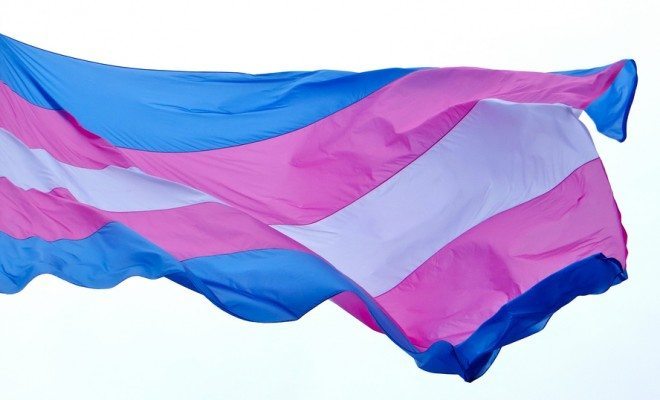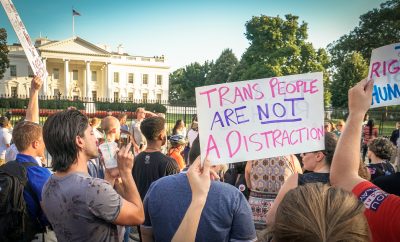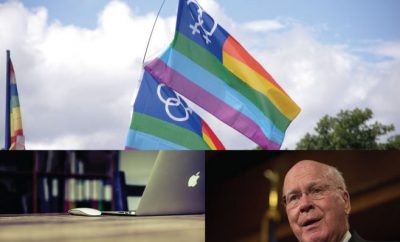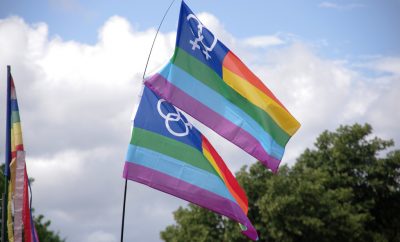 Image courtesy of [torbakhopper via Flickr]
Image courtesy of [torbakhopper via Flickr]
News
Caitlyn Jenner’s Debut: Will it Help Combat Anti-Transgender Violence?
Caitlyn Jenner, formerly known as Bruce Jenner, an Olympic gold medalist and personality of “Keeping Up With the Kardashians,” just reintroduced herself to the public in her debut on the cover of Vanity Fair. The Vanity Fair portrait, shot by photographer Annie Leibovitz, as well as sneak peeks from Jenner’s interview trended worldwide with overwhelming support. The full 22-page cover story will be released on June 9.
“I’m not doing this to be interesting. I’m doing this to live.” #CallMeCaitlyn http://t.co/Mwfy5PkjTp pic.twitter.com/V2NmSJG2eV
— VANITY FAIR (@VanityFair) June 1, 2015
Millennials took to social media to react to the Vanity Fair news, expressing support, inspiration, and hopefulness that the visibility of Jenner as a trans woman will stimulate necessary change in a world full of LGBTQ+ animosity and violence. Tweets in response to Jenner’s “Call Me Caitlyn” announcement fixated on two primary themes. The first theme was that having a public, affluent woman speaking out for trans rights and sharing the struggles of being a transgender person will cause erroneous, outdated perceptions on what constitutes gender to be shifted in a more understanding direction. There’s also hope that Jenner’s openness will shed light on an issue that is too often kept quiet. The second theme is that, for many, Jenner symbolizes happiness, bravery, and freedom for LGBTQ+ communities.
Transgender people are disproportionately victims of violence across the world and in the United States. Most shocking are the statistics of sexual violence, with a reported 50 percent of transgender people abused or assaulted at some point in their lives. The National Center for Transgender Equality (NCTE) and the National Gay and Lesbian Task Force (NGLTF) released a survey in February 2011 documenting transgender violence. An alarming 78 percent of those who identified as transgender or who expressed gender non‐conformity experienced harassment while in grades K-12, 29 percent reported being harassed by police officers, and six percent were physically assaulted by police officers. A 2013 report by the National Coalition of Anti-Violence Programs (NCAVP) found that transgender people were seven times more likely than non-trans people to experience physical violence when interacting with the police. Additionally, the report found that transgender people of color were six times more likely to experience physical violence from the police compared to white cisgender survivors. Transgender women were four times more likely to experience violence from the police; transgender men were 1.6 times more likely.
LGBTQ+ people who also belong to habitually marginalized populations such as minorities, lower socioeconomic groups, or who were formerly incarcerated experience even more targeted and often more severe violence. Although Caitlyn Jenner does not represent any of these marginalized groups (as a white, wealthy, non-incarcerated athlete and TV personality) she is considered one of the most famous, openly-transgender Americans. She can still offer support to these groups through encouraging tolerance and acceptance of trans people.
In many cases, both the media and law enforcement attempt to cover up violence inflicted on LGBTQ+ people through a lack of reporting and non-documentation of hate crimes. The Transgender Violence Tracking Portal, (TVTP) launched in 2014, has attempted to counter the deficiency of trans violence reporting through providing reports of these acts. Raising awareness of the incessant yet ignored problem of trans violence and pressuring law enforcement to protect the rights of trans people have become increasingly discussed subjects, provoked further by Jenner’s transition and her June 1st announcement.
There is obviously a huge problem with transgender violence in the United States, which stems from a lack of tolerance, understanding, and acceptance of trans people. These statistics do not include the individuals whose rights were suppressed by the courts–which have their own issues with biases and marginalization. These numbers also do not incorporate the voices that were silenced out of fear or powerlessness. The first step toward sustainable change is visibility of an issue. So, thank you, Caitlyn.








Comments